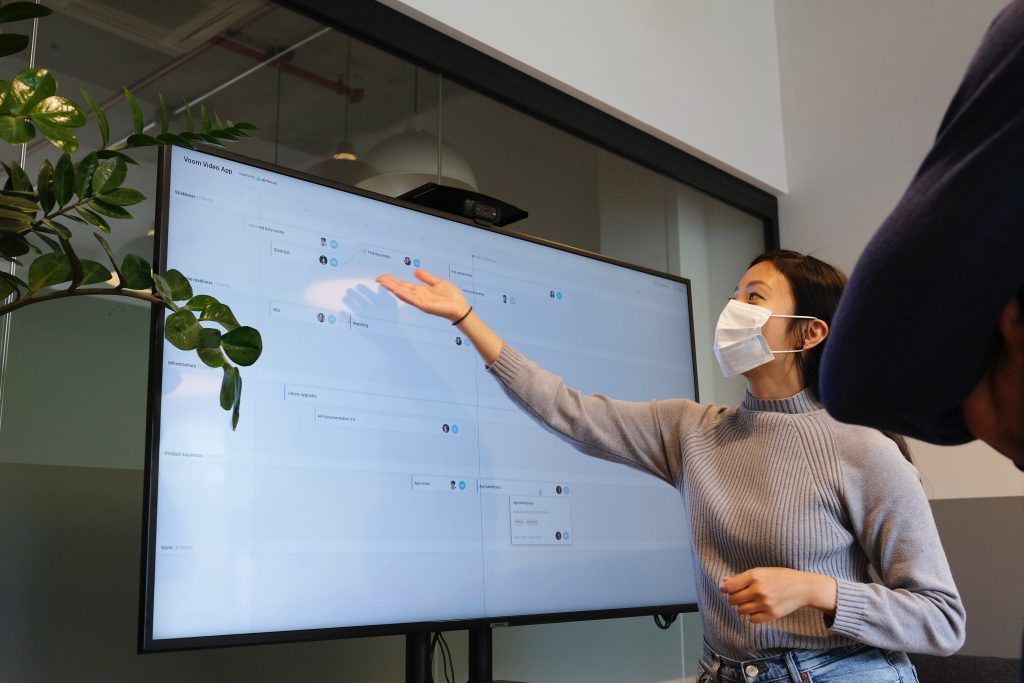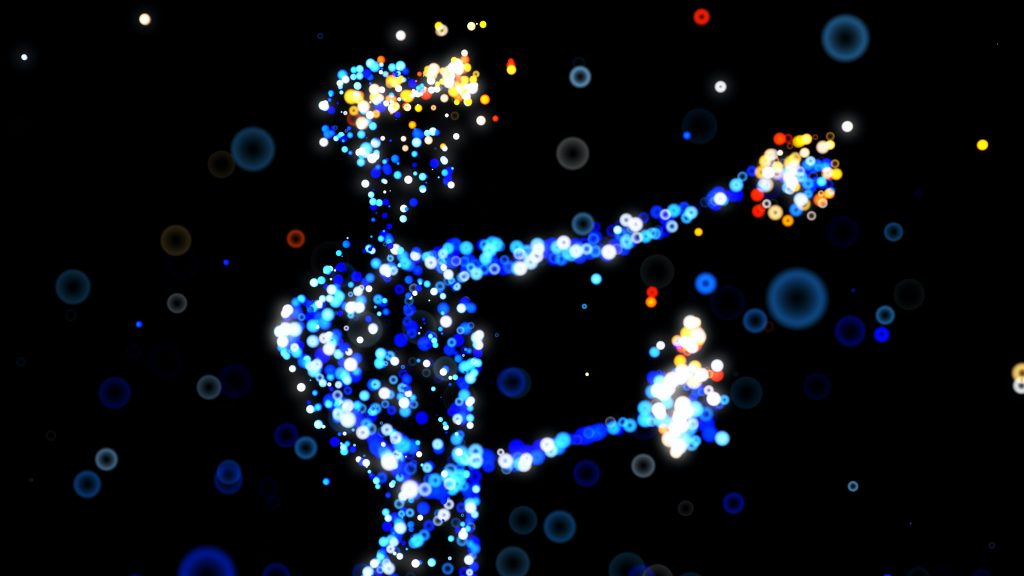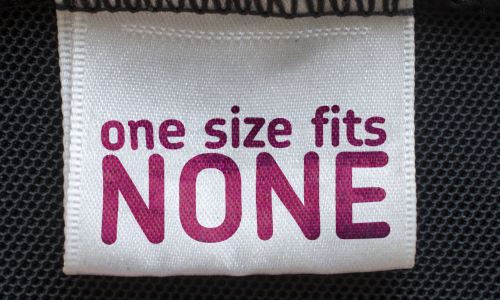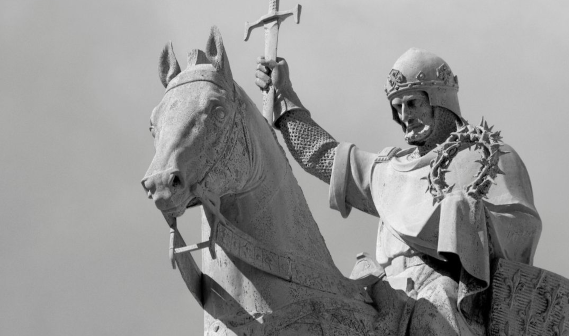View and download a PDF version here
Unprecedented is the defining word of 2020. From natural disasters to explosions, and political instability to the global pandemic; today’s leaders are forced to respond to a more complicated and rapidly changing environment than ever before. Collective leadership is the answer.
Leading through such complexity is like flying a plane in constantly changing conditions; or perhaps even building a new plane while flying through the eye of a storm. Coaching executive teams in Brisbane and beyond during 2020, I’ve seen these challenges first hand.
2020 has also driven record levels of mistrust in the world’s leaders, organisations and systems[1]. From the future of work to the pace of technological change, and fake news to climate change; people have lost faith in the ability of world leaders to successfully tackle these intractable problems – let alone a global pandemic and subsequent global recession.
However, individuals are increasingly putting their trust in local systems and leadership structures. 76% of two million people surveyed for Edelman’s Trust Barometer 2020 said they trust their employers. Additionally, 73% said they expected their employer to provide them with the opportunity to shape the future of society; and another 73% said they expected to be included in the planning process by their employer.
This means that – today more than ever – organisations have the potential to empower people, harnessing their unique talents to make a positive impact on the world. As we step into 2021, we can learn to lead in ways that facilitate and amplify the impact of individuals, to the greater good of organisations and society as a whole.
The changing face of strategy and leadership
Expanding collective leadership models
In 2020, business models were challenged, changed, eroded, created and expanded – so too, were leadership models. This is not surprising when you consider that March 2020 saw most organisations throwing out their carefully honed business plans and facing into the wind.
We saw the erosion of hierarchical leadership models based on power, control and expertise. The external context challenged the even most strongly-held belief of control, power over the situation and expertise, as leaders were confronted by a scale of challenge never seen before.
What arose – and what I experienced first hand as I coached CEOs and leadership teams – was the need for collective leadership, where groups of people to work together, beyond existing structural and role-based expectations, to navigate (not solve) challenges in an ever-changing and emergent context. The future could not be predicted, and the past could not be used to model what came next.
This created a new leadership framework, where collective leadership was the focus: and teams either floundered or flourished; depending on their interconnectivity practices, level of collective development and dedication to self-reflection, growth and evolution.
In 2021 and beyond; coaching, whether for CEOs, executive teams or individuals, needs to be focused on developing collective leadership capability.
Evolving structures and processes
No single leader has all the answers. The most successful leaders during the global pandemic took a collaborative approach, using collective intelligence to work through the challenges that just kept coming. Strategy, planning and leadership must now incorporate adaptable processes that deal with probability, possibility and the scope to flex when (and not ‘if’) change happens.
For numerous organisations, there is already a shift towards agile methodologies, flatter business structures and cross-functional teams. These fresh ways of organising teams, projects and businesses require us to move away from hierarchical power and control structures, towards more flexible structures that allow for collective solutions to arise in response to complex problems. In other words, collective leadership approaches.
We don’t need another hero
Successful organisations can only shift, respond and transform if their leaders can change their ways of leading, decision-making and delivering outcomes. Coaching the CEO alone is no longer enough – we need to be coaching executive and leadership teams as dynamic systems, to enhance their collective leadership capabilities.
I often say, ‘we don’t need another hero’… the idea of a leader riding in to save the day is obsolete. We definitely don’t need another group of individual heroes working from their place of expertise, their ideas of right and wrong. This only works within a relatively steady-state and where outcomes are predictable. In other words… not now.
Hero leaders typically:
- Believe in their own ability to solve the problem
- Work to protect people from the problem
- Work to reduce the size of the problem for people so it isn’t too confronting
- Work to get the ‘right or best’ outcome for others
- Swoop into issues to ‘save the day’
- Deal in probabilities and assumptions
- Are confident in their ability to predict and respond.
Despite their best intent, hero leaders disempower and disengage people; reduce collective resilience; increase dependence; simplify problems or narrow them to their area of expertise; create a focus on themselves and their decision making; fail to explore possibilities; and reduce problems to right and wrong – in other words, their way or the wrong way.
In Leadership in the Age of Complexity[2], Margaret Wheatley and Debbie Frieze discuss thinking of a leader less as a ‘hero’ and more as a ‘host’. When a leader is the ‘hero’, he or she is expected to have all the answers, solve all the problems, and fix everything for everyone else. The ‘hero’ is dynamic, charismatic, and brilliant. The problem with this command-and-control model is that it leads to quick solutions that are created by a few in power; often these solutions are not well suited for the complex issues that we face today.
Instead of ‘heroes’, Wheatley and Frieze suggest, we need ‘hosts’ as leaders: those who have the skills to promote collective learning, effective group decision making, reflection, visioning and goal setting, and mutual accountability. We need leadership collectives with the talent, skills and adaptability to work interdependently. This is the focus of Karuna Collective’s CEO coaching and executive team coaching.
Developing collective leadership
The future of leadership beyond 2021 is about the collective; where groups of individuals lead and influence the organisation system to adapt and respond to emerging challenges. This requires that leaders work in congruence with each other, rather than leading their own domain to success, even when that comes at the expense of others.
The leaders of the future will have the flexibility to change themselves, their mindsets, behaviours and identity. You can’t drive radical transformation if you, as a leader, are not willing or able to shift and change to the same degree.
So how do we develop these new collective leadership capabilities? Imagine an executive leaving the office to attend traditional executive coaching, learning and development activities for a few days or a week. When she returns, she steps back into the same old collective system with its practices, rhythms, rituals and thinking. No matter what she learned in the classroom, she can’t deliver transformation if the system she returns to is stagnant.
We need a dynamic new approach to leadership development, based on the growth and connectivity of the group – not just the individual. New models and methods of executive coaching are required, to develop collective leadership capability across organisations and teams.
The new collective leadership capabilities
The matrix below shows how leaders can, and indeed must, adapt their leadership style to changing problems and situations, as well as the capabilities they require in each context.
| Types of problems | Simple domain | Complicated domain | Complex domain | Chaotic domain |
| Problems to solve | Known knowns | Known unknowns | Unknown unknowns | Unknowables in crisis |
| Answers | Right and wrong | Probabilities could be modelled | Possibilities, emergent | Unpredictable |
| How to act | Sense, categorise, respond | Sense, analyse, respond | Probe, sense, respond | Act, sense, respond |
| Leadership type | Expert oriented, process or rule driven. | Collaborative, harness the experience of others. | Collective, harness the perspectives of others. | Directive, power and control. |
| Natural stage of adult development | Expert – achiever | Expert – individualist | Individualist – alchemist | |
| Decision making | Determine best practice based on data and optimise. | Determine good practice and drive transformation. | Work through possibilities and options and take incremental action. | Iterative. Make the decision in the moment and respond to the consequence. |
| Capabilities needed | Data analysis, process mapping, detail orientation. | Co-design and collaboration skills, questioning, synthesising, prioritising. | Exploratory questioning, deep listening, pattern making, experimentation. | Decisiveness, confidence, conviction. |
The top 10 collective leadership attributes for 2021 and beyond
These are the top ten attributes I’m focusing on in coaching executive teams for 2021.
1) Collective leadership as a team sport
Leadership is no longer about the individual leader refining their performance, like a golfer or swimmer. Instead, leadership is a team sport, like netball or soccer. As José Mourinho, the world-renowned soccer coach puts it, ‘[Individuals] have special talents but without the team they cannot express everything they have’. We need to coach executive and leadership teams to help all members express their talents. We can only do so when we work as a collective, in synergy with others.
2) Ubuntu: Human beings being human together
‘In Africa there is a concept known as “ubuntu” – the profound sense that we are human only through the humanity of others; that if we are to accomplish anything in this world it will in equal measure be due to the work and achievement of others’ – Nelson Mandela.
Or, as Archbishop Desmond Tutu put it, ‘A solitary human being is a contradictory term as you have to learn from other human beings how to be human’.
In an executive coaching setting ubuntu could include taking the time to understand the humans in the room – their strengths, shadows, preferences, perspectives, histories and stories. With this understanding it becomes possible to design conversations that leverage the full collective intelligence in the room.
Ubuntu is about appreciating and developing the whole human, not just the technical expert. It’s about respecting the interconnectivity of life and work, and the fluidity between the two. With ubuntu we can establish deep relational equity that forms the foundation from which to continue to challenge and develop each other through collective leadership frameworks.
3) Dexterity to hold multiple perspectives and needs
To build collective leadership skills, I coach executive teams to have the dexterity to be able to hold the perspectives of others simultaneously with their own. Leaders need to let go of the concepts of ‘right and wrong’, ‘win or lose’ and instead explore how different perspectives can co-exist and add value. This in turn opens up possibilities and options.
It can help to focus, as an executive team, on those you collectively serve (people, customers, shareholders, community) and what their experience is. Working through conflicts and challenges in meeting the needs of those different groups helps to focus the team on delivering outcomes for multiple benefits beyond shareholder returns.
4) Driven by values and purpose
I coach executive teams and CEOs to develop their own sense of purpose and values. Having this strong sense of a ‘true north’ can help you navigate when other people have a different perspective.
Your purpose is never fully achieved – it is an enduring motivation that encourages you to be more and do more. It makes the sacrifices of work worthwhile, beyond financial reward. As Friedrich Nietzsche expressed it, ‘He who has a why can bear almost any how.’ Leaders need to find this ‘why’ in themselves and help their people to find it too.
It’s been interesting during 2020 to see whether the decisions made during crisis or complexity have truly reflected the values and purpose espoused by leaders and the organisation. Having a true sense of organisational purpose and values should help to navigate challenges and create a sense of motivation and enduring resilience when met by conflict and challenge.
2020 challenged people to delve deep into their values and reason for being in the world. 2021 represents an opportunity to reframe work and life as a result of this introspection. There’s an opportunity before us as leaders, to allow people to fully express their values and connect their work to the impact they desire to make in the world. This is something I’ll be rumbling with as I’m coaching executive teams in 2021.
5) Curiosity to learn from others – embracing working in the unknown
The world is moving quickly, and we all filter information through the lens of our own background, experience and bias. To lead in 2021 and beyond, we need to acknowledge gaps in our personal knowledge and actively seek out other perspectives. Today’s leaders must hold their own bias separate to the data surfacing from the person or people they’re listening to.
When you create full awareness of how people are seeing, experiencing and making sense of the world, you can truly leverage the diversity in the room. Conversely, bringing this awareness to group interactions can expose the lack of diversity in a room, so that you can go out and actively seek different perspectives to make better decisions. This is something I constantly have in mind when I’m coaching executive teams, where a lack of diverse and divergent opinions can be a serious issue.
Collective leadership is about going out into the world, learning from others and having the vulnerability to not be the expert in the room, or provide all the answers. The problems we’re collectively tackling in 2021 and beyond are of a kind not yet seen in our careers or our past experience.
I recommend exploring the work of Jennifer Gervey Berger on Listening to Learn, not to Win or Fix. We need to become experts in questioning for exploration, not interrogation; questioning to understand, not confirm understanding or individual point of view; and questioning to surface assumptions (our own and others’) and to explore without bias, criticism or critique. Questioning is everything!
6) Taking on fluid and adaptive roles to change the system dynamic
Are you the task master, the action-oriented person in the room? Or are you the connector and collaborator? What about the empathiser and listener?
As I coach executive teams and CEOs I ask them to consider how taking up these roles, every time, in every team meeting, keeps the team stagnated in the same dynamics. And how does this result, time and again, in similar outcomes for different problems?
If you want to create a shift in the team dynamic, you can start by understanding the role you always adopt, and taking up an alternate role. Become – just for an hour – the listener instead of the driver. Try being the empathiser instead of the expert and see what happens.
Who will take up the other roles, step into somewhere that’s not their natural place to play? How will this stretch you, and how will it stretch them? How does this change the dynamic and what then becomes possible?
Often, when you change the team roles you typically play, you can surface information that would otherwise go unheard and unactioned. I’ve seen this collective leadership technique lead to more engagement and a different energy when I’m coaching executive teams.
7) Collective sensemaking and patternmaking
Often when I’m coaching CEOs and executive teams, I’m working with them to bring attention to subtle nuances in the environment, their people, the organisation and the wider context.
Leadership in 2021 will be about making sense of what is emerging and what is not yet obvious, to create connections and observe patterns in the intelligence available. This can also mean discovering polarities, alternative views and challenging assumptions. The leadership teams of 2021 will work through probabilities and possibilities without bias and assumption.
8) Collective leadership, problem-solving, decision making and accountability
I coach CEOs and executive teams to design decision-making processes for when there is conflict, challenge or simply alternative views to consider. A key part of this is co-designing clear accountabilities and expectations of each other as the team works through delivery.
Taking the time to set these clear expectations and agreed ways of working ensures effective collaboration and allows collective leadership, intelligence, collective experience and collective strengths to come to the fore.
This is also a powerful way to drive accountability and performance in a collaborative environment where multiple people are needed to work on solutions and outcomes. For example where there are significant challenges at hand and intelligence/experience sits across multiple functions, teams and individuals.
Another great outcome of this approach is building greater levels of comfort with challenge and conflict among individuals and the team as a whole. This is essential, as challenge and conflict are the birthplaces of transformation.
9) Unlearning
It’s an unfortunate fact that the things that made you successful in your career are probably the things that will hold you back as a leader. We need fewer leaders who are experts and more leaders who can facilitate and harness the expertise of others through collective leadership.
In my work coaching executive teams, I encourage leaders to hold the space for new thinking and intelligence to emerge, without a sense of threat or need for control – but rather a sense of curiosity and inquisitiveness. Rushing to have an answer – or the answer – limits leaders’ ability to find emergent options and possibilities.
Many of the executives I coach have learned over many years to be self-sufficient, motivated by achievement and fearless in pursuing set outcomes. When I’m coaching executive teams, we come together to flip this mindset; we create increased faith in collective intelligence and collective leadership to navigate unknowns and forge paths forward.
I encourage all leaders to use 2021 as an opportunity to ‘unlearn’, taking on the challenge of breaking open the part of your identity that’s based on success and expertise. To succeed in this brave new world, we need to embrace a way of being that’s about reformation, growth and evolution – true transformation, in fact.
10) Creating psychological safety and belonging
When I’m coaching executive teams, one thing I’m always keen to work on is creating a shared sense of psychological safety. When members of a team enjoy the shared belief that they’re safe to interpersonal risk-taking, that’s psychological safety[3]. It’s a climate of openness and trust that enables the team to talk openly about their mistakes, which in turn allows them to learn more and solve problems better. Individuals feel comfortable being themselves without fear of being punished, rejected or embarrassed. This enables team members to voice their mistakes and concerns, ask ‘stupid questions’ and volunteer new ideas.
How to build these 10 critical collective leadership attributes
The skills of collective leadership are not built in the classroom, but in the work. Leadership is never about the individual, but instead always about the group. To develop the leadership skills we need in 2021 and beyond, we don’t need leadership learning facilitators – we need coaches who can design conversations and coach teams to drive organisational outcomes and personal/collective development simultaneously.
The Karuna Collective executive coaching framework is about using our time together to work on the work and work on the team, introducing practices to develop and enhance collective leadership skills. When I coach executive teams – and even when I’m asked to coach an individual such as the CEO – I focus on building personal development into the work of the team, supplemented with one-to-one coaching interventions.
In the post-COVID world of work, face-to-face interaction is likely to be less frequent, as organisations adapt to more dynamic and distributed operating rhythms. Despite this, teams require exponential development to keep pace with the exponential change in the external context. This can only happen if personal and collective development is front and centre of every interaction and inherent in the work that is consuming the individual and organisation.
The Karuna Collective works with organisations to break away from traditional people frameworks that reinforce old behaviours and thinking, and create adaptive, progressive and fluid models to address the shifting dynamic in organisations through collective leadership.
How help you develop collective leadership
- Individual interviews – to surface different perspectives about the team and organisational dynamic, as well as the challenges and opportunities at hand.
- As part of the interviews, assess each individual’s stage of adult development, growth edge opportunities and potential.
- Observe the collective in action – understand group norms, rhythms and rituals and how these help or hinder the growth and development of its members, and facilitate or erode collective leadership.
- One-on-one coaching with team members to kickstart unlearning and provoke individual development, using growth edge coaching, integral leadership development and tools like the leadership circle 360.
- Design and facilitate team conversations, to generate work outcomes but also generate developmental outcomes, enhancing and creating context for greater collective leadership. This enables the team to practice their capabilities in the work and create feedback loops for reinforcement and constant evolution.
- Facilitate exponential growth and development of the individual, collective and the organisation.
[1] Edelman Trust Barometer 2020
[2] Leadership in the Age of Complexity, Margaret Wheatley and Debbie Frieze
[3] Amy Edmonson, Psychological Safety






